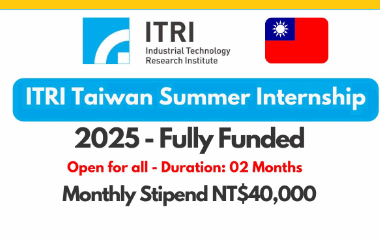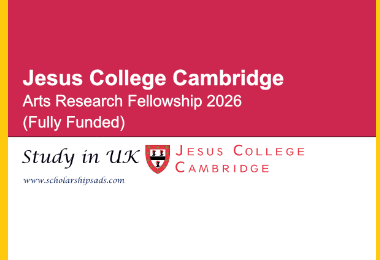Pursuing a PhD abroad is a life‑changing decision, and doing so in Canada offers access to world‑class research facilities, multicultural campuses and strong post‑degree prospects. For international students, funding is a key issue. Fortunately, Canada offers a number of excellent scholarship programmes specifically designed for doctoral candidates from outside Canada.
In this article we’ll explore some of the most compelling options, eligibility criteria, application strategies, and how to maximise your chance of success.
Why Canada?
Canada is increasingly recognised as a leading destination for higher education. With strong research output, generous scholarship funding, and a welcoming environment for international students, more PhD candidates are turning to Canadian universities. According to one source, there are over 800 scholarships available for international students for PhD study in Canada in 2025‑26.
Key advantages include:
- Access to globally ranked institutions and research centres
- Opportunities to work during your studies (in many cases)
- Multicultural environment with significant support for international students
- Possibility of remaining in Canada after degree (depending on visa/work policy)
Given all this, selecting the right scholarship is a critical step.
Top Canadian Scholarships for PhD Students (International Applicants)
Here are some of the best scholarship programmes to consider.
1. Vanier Canada Graduate Scholarships (VCGS)
One of Canada’s flagship doctoral awards, the Vanier is designed to attract world‑class talent.
- Value: approximately CAD $50,000/year for three years.
- Eligibility: Typically open to doctoral students (including international) who demonstrate academic excellence, research potential and leadership ability.
- Why apply: It’s prestigious, fully funded, and provides a strong platform for research and networking.
- Application tips: Ensure you meet the leadership criteria; prepare a standout research proposal; secure strong references; highlight how your work aligns with Canadian research priorities.
2. Pierre Elliott Trudeau Foundation Doctoral Scholarships
Highly competitive and generous, this award targets doctoral candidates (including international) researching in the humanities and social sciences.
- Value: Up to around CAD $50,000/year for three years, plus additional allowance for research/travel.
- Areas: Research related to themes such as human rights and dignity, responsible citizenship, Canada in the world, and people & their natural environment.
- Why apply: For social sciences/humanities scholars, this offers strong funding and a vibrant community of mentors and peers.
- Application tips: Emphasise leadership, interdisciplinarity, and impact beyond academia; weave in elements of civic or global relevance; highlight how your work addresses one of the foundation’s key themes.
3. International Doctoral Scholarship (University of Ottawa)
This is a university‑specific scholarship available at University of Ottawa for full‑time doctoral international students. University of Ottawa
- Value: CAD $45,000 over five years (for students admitted from May 2023 or later).
- Eligibility: International doctoral students admitted to the University of Ottawa; full‑time enrolment required.
- Why apply: While slightly lower value compared to national awards, this is a stable offer attached to a major Canadian bilingual university.
- Application tips: Ensure you apply to the University of Ottawa and meet deadlines; emphasise your international research angle; highlight bilingual and multicultural competencies if applicable.
4. Other University‑Level Scholarships & International Awards
Many Canadian universities offer supplemental funding or entrance scholarships for international PhD students. For example:
- At Dalhousie University you’ll find entry scholarships for doctoral students including international ones.
- There are lists of 500+ PhD scholarships in Canada for international students, which means your search can uncover additional opportunities.
- The government site EduCanada lists scholarships for international applicants.
Tip: Don’t limit yourself to the very top awards. Also target “good” university‑level funds and departmental awards — your chances may be higher, and these can stack with other funding.
How to Choose the Right Scholarship
When deciding which scholarship(s) to apply for, consider the following:
- Field of study alignment – Some scholarships restrict to certain areas (e.g., humanities, social science, STEM).
- Institution eligibility – Ensure the target university is included (or you plan to apply there).
- International eligibility – Confirm the scholarship accepts non‑Canadian nationals.
- Value and duration – Does the funding cover full tuition + living expenses? For how many years?
- Application volume & competitiveness – National awards like Vanier or Trudeau are extremely competitive; university awards may be more accessible.
- Additional benefits – Some include mentorship, research travel funds, peer networks, language training (especially bilingual ones).
- Deadlines & prerequisites – Many awards require you to already be admitted to the PhD programme, or have begun your studies, or have a supervisor lined up.
Application Strategy: Step‑by‑Step
Here is a recommended approach to prepare a strong application for a Canadian PhD scholarship.
Step 1: Secure admission to a Canadian PhD programme
Most of these scholarships require you to hold an offer (or be currently enrolled) in a full‑time PhD programme in Canada. For example, the University of Ottawa scholarship is for full‑time international doctoral students admitted May 2023 or later.
Step 2: Choose the scholarships to target
Select 2‑4 awards: perhaps one national flagship (e.g., Vanier or Trudeau) and one or two university‑level ones. Balance ambition with strategy.
Step 3: Research eligibility and requirements thoroughly
Download the official guidelines for each scholarship. For example, the Trudeau Foundation expects research aligned with its four themes and values leadership and engagement.
Step 4: Draft a compelling research proposal
Highlight novelty, impact, feasibility, and alignment with Canadian research priorities. For leadership awards emphasise your broader contributions (community engagement, outreach, leadership).
Step 5: Secure strong references and choose your supervisor
For doctoral scholarships, a strong endorsement from a prospective supervisor is often critical. Make sure they support your application and can speak to your research potential.
Step 6: Prepare additional materials
These may include CV, publication record (if any), transcripts, language test reports (IELTS/TOEFL), and statements of leadership or community service (for some awards).
Step 7: Submit early, check follow‑ups
Scholarship competitions are timing‑sensitive. Meet all deadlines, follow guidelines, and verify you have submitted correctly. Where possible, seek feedback or pre‑review from mentors or university funding office.
Step 8: Manage expectations & apply broadly
Even if you apply for top awards and don’t succeed, you might still get university‑level funding. Always apply to multiple opportunities. With over 800 doctoral scholarships in Canada for international students reported for 2025‑26, your chances improve the more you apply.
Frequently Asked Questions (FAQ)
Q1: Are these scholarships restricted to Canadian citizens?
No. Many accept international students (non‑Canadian nationals). For example, the Trudeau Foundation explicitly includes international students studying at Canadian institutions.
Q2: Will the scholarship cover living costs and tuition?
Some will cover both tuition and living expenses (e.g., Trudeau Foundation up to ~$50k/year). Others may focus more on tuition or provide a fixed amount. Always check the details.
Q3: Do I need to have a supervisor or research proposal already?
Yes — in most cases you need to have secured admission or at least have a supervisor-approved proposal or letter. For flagship awards, the quality of the research plan and supervision are key.
Q4: Can I work while doing my PhD in Canada?
Yes — international students in Canada often are allowed to work both on and off campus (subject to visa/study‑permit rules). One article notes full‑time work is possible during semester breaks.
Q5: Is English mandatory or can I study in French?
English is typically accepted; many Canadian universities are bilingual (English/French). Some scholarships may favour bilingual competence especially if research involves a Francophone dimension. The University of Ottawa’s bilingual environment is one example.
Tips to Maximise Success
- Start early — identify programmes and deadlines well ahead.
- Tailor your application to each scholarship’s criteria (leadership, interdisciplinarity, impact).
- Highlight your international perspective — your home country, global networks, cross‑culture research etc.
- Demonstrate alignment with Canada’s research strengths or societal challenges (innovation, sustainable development, human rights, etc).
- Network with your prospective supervisor and get their support.
- Prepare reference letters early and brief referees on the scholarship’s priorities.
- Proofread carefully and follow every requirement (format, word count, supplementary documents).
- Apply to several scholarships — don’t rely on one.
- Follow up and track deadlines, and keep backup funding options in mind.
Conclusion
For international students seeking to pursue a PhD in Canada, the opportunity to access generous funding is real. From prestigious flagship awards like the Vanier and Trudeau Foundation scholarships to strong institution‑based programmes like the University of Ottawa’s International Doctoral Scholarship, there are multiple pathways to make your doctorate financially viable.
By choosing the right scholarship, aligning your application with its requirements, and presenting a strong research and leadership profile, you can put yourself in a strong position. Start early, apply broadly, and invest time in preparing a top‑notch application — it may be the gateway to your doctoral journey in Canada.










